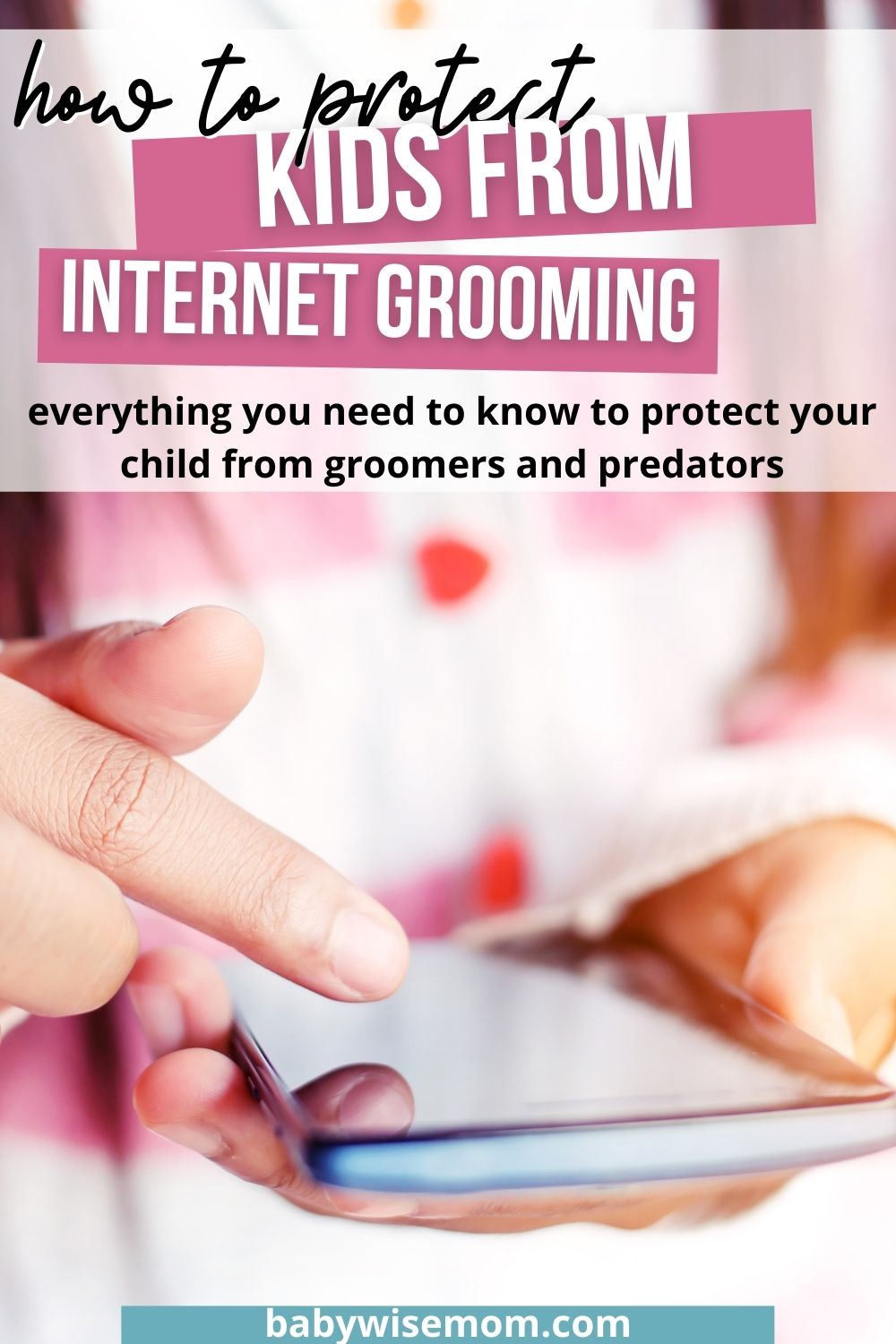We cover everything you need to know about protecting your child from internet grooming and online predators.

Guest Post
As social media, online games, and instant messaging become more commonplace in today’s society, children can talk to more people than ever before, whether they are friends or strangers. While this can help children feel less isolated and maintain connections with their peers, it leaves them vulnerable to online grooming.
According to research, the “stranger danger” concept is a very real concern among younger children. If you give them the right advice early to make smart online decisions, you can minimize the risk of online grooming. This is easier said than done, however, especially as your children get older and feel more independent.
Still, the top way to deal with grooming is to stop it from happening at all, make sure your child understands the concept, uses privacy settings on social media, and knows they can come to you or another responsible person in their life if they feel concerned or worried about something.
Post Contents
- How to Keep Your Children Safe Online
- Keep Information Private
- Adjust Privacy Settings Appropriately
- Monitor Apps, Websites, and Games
- Know Their Online Friends
- Encourage Your Children to Communicate Their Concerns
- Use Blocking Software
- Install a Phone Tracker
- How to Talk to Your Child About Online Grooming?
- Final Thoughts
- Related Posts
How to Keep Your Children Safe Online
There are numerous things you can teach your child to protect them from internet grooming. These include:
Keep Information Private
Children need to know which details can identify them beyond the internet, such as their name, gender, age, address, school name, and phone number. Children should only share this information with people they already know.
Adjust Privacy Settings Appropriately
Parents should spend time with their children looking at privacy settings. Always assume the default settings on any social network, app, or online game are public and need to be changed. There are many online guides for different social network privacy features.
Monitor Apps, Websites, and Games
Avoid social media. Even adults struggle with social media; young teens and tweens are not equipped to deal with it.
If and when you start to allow social media, try them out any platform your teen wants to use BEFORE saying yes (you can set up an account if necessary) to get a feel for things. You may wish to direct your child to kid-friendly social networks before letting them use Facebook or Instagram.
Know Their Online Friends
Children should understand that some online friends may feel genuine but turn out to be somebody else entirely. This is how many online groomers operate. Speak to your child about staying cautious when talking to strangers online. It is wise to set a rule that they simply are not allowed to communicate with anyone online they do not already know in person.
Encourage Your Children to Communicate Their Concerns
If your child is uncomfortable online or worried about a particular online friend, encourage them to talk to you or another adult they can trust.
Use Blocking Software
Many apps and parental control tools have blocking software that filters and monitors your child’s online behavior. This may not be appropriate for older teens. Parents should keep a keen eye on their younger teens, tweens, and kids online habits. Try to strike a balance between privacy and safety, allowing your child some independence and trust.
Install a Phone Tracker
You may want to use a parental control phone tracker like MMGuardian. If your child is old enough to meet their friends outside, this will help you know where they are. Phone trackers are an excellent tool. MMGuardian allows you to use your own phone to see where your child is. The app can be programmed to send regular updates as well.

How to Talk to Your Child About Online Grooming?
Some parents find online grooming difficult to talk about with their children. These tips may help.
- Be approachable: Let your children know you are there for them if they have trouble online.
- Discuss online friendships: Make sure you regularly discuss their online friends, how they know them, what they talk about, and similar topics. Let them know having lots of online friends isn’t always safe.
- Discuss what grooming means: Ensure your children understand what grooming is and how to spot it if somebody is trying to groom them. Use this as an opportunity to explain online impersonation and how groomers pretend to be somebody else to gain their trust.
Final Thoughts
As you can see, there are many ways to protect your children from online groomers. If you follow these tips, both you and your child should be well equipped to deal with any grooming issues.
This guest post is brought to you by MMGuardian
Related Posts
- Effective Parenting In The Digital Age
- What Age Should Kids Have Social Media Accounts?
- How to Establish Safe Media Standards For Your Family
- Balancing Technology for Kids

